William F. Who?: Walter Huss and the American Conservatives Who Couldn't Have Cared Less About Bill Buckley
Some thoughts on the recently released PBS documentary about William F. Buckley
Mention William F. Buckley to your average Trump-hating, AARP-eligible liberal or centrist and you’ll probably hear something wistful like “I remember watching that guy on TV and hating his guts, but at least he was a reasonable conservative you could argue with.”
Mention William F. Buckley to your average Trump-loving, AARP-eligible MAGA voter and you’ll probably hear something dismissive like “Who? Never heard of him” or “Who gives a shit about that Never Trump warmongering elitist?”
Memory often distorts history, but in this case, the way Buckley is remembered (or not remembered) today is fairly indicative of who he was during the height of his career as the unofficial “gatekeeper” of conservatism, ca. 1955-2000-ish. Buckley, with his posh accent, commodious vocabulary, and familiarity with the classics of literature and philosophy, was the public face of a “conservatism” with which liberals and centrists could respectfully disagree. But the “conservative movement” astride which Buckley stood, yelling “go get ‘em boys,” was a far more vengeful, illiberal, anti-intellectual, and humorless beast than was evident in Buckley’s generally cool, urbane, and clever exterior. Buckley wasn’t as much the personification of a robust, “reasonable” conservative tradition as he was an affable distraction from the roiling illiberal waters upon which he sailed, and which now threaten to engulf us.
That capsule account of Buckley’s historical significance I just offered is not, unfortunately, the impression one would gather from this new PBS documentary about him.
Rick Perlstein wrote an excellent, scathing take down of the documentary that I mostly agree with, though I do think the film is still worth seeing. I watched the documentary after reading Perlstein’s critique, and I was pleasantly surprised to find that it was less of a whitewash than I had expected. Indeed, my sense is that most contemporary viewers, especially young ones, will clearly pick up on the more nastily racist and reactionary aspects of Buckley’s politics that get depicted here, even if they are not explicitly thematized as much as Perlstein or I might like. The presentation of Buckley’s embarrassing shellacking at the hands of James Baldwin at the 1965 Cambridge debate, for example, is pretty unsparing. It’s hard to imagine how a non-racist viewer of good faith could watch that and think “boy, that Buckley guy really made some good points.”
Perlstein’s critique of the documentary emphasizes how little attention it pays to the last few decades of scholarship on the US right, specifically its insights about the porous boundary between Buckley’s “respectable right” and the fascist-adjacent “far right.” I agree with that critique, but my research on Walter Huss has revealed a slightly different aspect of Buckley’s relationship with “the conservative movement” that I want to expand upon a bit…and that’s the extent to which many self-described “conservative” activists couldn’t have cared less about Bill Buckley or what appeared on the pages of his National Review. To them, Buckley was tolerable, but he didn’t really “get it.” They assumed he would have to either change course and “get it,” or simply be pushed overboard once “true conservatism” triumphed. I imagine there are more than a few former Republicans out there today who might find that dynamic familiar.
What Bill Buckley didn’t “get” about the American Conservative movement
Buckley got a taste of this dynamic as early as 1954, the year before he founded National Review. He and his Franco-admiring brother-in-law L. Brent Bozell had just published a book defending the recently disgraced Joe McCarthy. While most Amerians today remember McCarthy as a disgrace, in 1954 he was still in favor with many anti-communists like Buckley, and he was especially beloved by the subset of American anti-communists who were virulently antisemitic fascists. One of the nation’s leading McCarthyite fascists, Gerald LK Smith, gave Buckley’s book a glowing review in his magazine, The Cross and the Flag. Buckley, not wanting to be associated in any way with Smith’s bigoted “America First” and “Christian Nationalist” brand, wrote Smith a letter clearly stating his disdain for Smith’s politics.
Gerald LK Smith Papers, Box 4, William F. Buckley folder. Thanks to historian John Jackson for sharing this document with me. I looked up the address in Glendale where Smith lived in 1954 and there’s currently a Tesla supercharger and a garish mall named Americana located there. Make of that coincidence what you will.
Smith, who’d been traveling the nation organizing American rightists for two decades, responded to Buckley by basically saying “tut tut young man, soon enough you’ll leave your childish naïveté behind and come to understand the Communist/Jewish threat to white Christian America in the same way that I and my followers do.”
In hindsight, we know that Smith would come to be a footnote in US history compared to the towering figure of William F. Buckley. But in 1954 Buckley was an upstart on the right, a new player who had to pester his father’s wealthy associates for mailing lists he could use to drum up enough subscribers to make his fledgling new magazine, National Review, viable. [One of the more productive mailing lists Buckley secured in the late 1950s, it’s worth noting, was that of the White Citizens’ Council. So much for Buckley’s “categorical” rejection of racists like Smith, eh?] Smith, meanwhile, had a rapidly growing mailing list that consisted of 3 million names by 1960. If one was a grassroots, right-leaning white Christian American in 1954, you were far more likely to be reading the hard-hitting, white supremacist and Christian supremacist stylings of Gerald LK Smith than you were to be reading Bill Buckley’s ponderous book about Yale’s curriculum, a book that did, however, make Buckley a topic of much discussion in the nation’s “serious” magazines and Yale club dining rooms.
A quick glance at the media landscape in the mid-1960s provides a useful sense of scale in terms of Bill Buckley’s influence. The National Review, listed third here, is the furthest left periodical on this list. Some quick math indicates that in 1966, at a high point of National Review’s circulation, their circulation of about 100K was dwarfed by the circulation of about 900K periodicals listed here that were to their right, the bulk of which were dominated by evidence-free conspiracy theories and were, implicitly if not explicitly, white supremacist and Christian supremacist.
This data was collected by Group Research, Inc, a small research operation funded mostly by labor unions, whose mandate was to keep tabs on the far right. They did an amazing job of it from the late 1950s into the 1990s and, IMO, are very deserving of a book-length study. 512 boxes of their archival materials are held at Columbia’s library.
The first periodical on this list, the Liberty Letter, was run by a neo-Nazi named Willis Carto. The publication itself avoided overt antisemitism, but one needn’t have been a Nazi rocket scientist to pick up what that publication was laying down. Number 2 on the list was The Defender, published by Christian Nationalist Gerald B. Winrod who was colloquially known as “the Jayhawk Nazi” because, well…he was from Kansas, and thought Hitler had some pretty good ideas. The Councilor was put out by the Louisiana White Citizens Council and was edited by a neo-Nazi named Richard Cotten who hosted a syndicated radio show called “Conservative Viewpoint.” The Christian Crusade was published by Billy James Hargis. Hargis had received his advanced degree in divinity from Gerald B. Winrod’s offshore degree mill. Hargis also had ties to a host of segregationists and neo-Nazis like Walter Huss, Richard Cotten, and Revilo Oliver, but he at least made a semblance of an effort to downplay such unsavory connections. In the mid-1960s Hargis’s propaganda shop was perhaps best known for promoting the idea that The Beatles’ music was designed to hypnotize young people so as to turn them into Communists. The author of that book, David Noebel, would later go on to be an influential mentor to Minnesota Congresswoman Michele Bachmann.
Salem Statesman Journal, 17 October 1964.
Continuing down that Group Research list from 1966, American Opinion (circ. 43,000) was the magazine of the John Birch Society and the Dan Smoot Report (circ. 31,000) was a paranoid conspiracy rag propped up by oilman HL Hunt and other reactionary plutocrats like dog food magnate D.B. Lewis. I could go on, but hopefully the point is clear…that in the mid-1960s, Buckley’s National Review was a relative drop in the bucket when compared to the vast universe of America’s “right-leaning” media. And more importantly, most of those publications to the right of National Review spent almost no time talking about the National Review. They did not treat it as some canonical, agenda-setting text to which they should be paying attention, let alone obeisance. Buckley’s National Review, meanwhile, spent almost no time engaging critically with the organizations and publications to their right. Indeed, if one only read National Review in the 1960s and 70s one would barely know that Gerald LK Smith, Gerald Winrod, Dan Smoot, Billy James Hargis, Richard Cotten, Cleon Skousen, or [insert influential far right radio host here] even existed.
On the other hand, when Bill Buckley did take the rare and brave step of disavowing the absurd conspiracism of Robert Welch in 1961, he made it a point to go easy on rank and file Birchers, the readers of American Opinion, praising them as very fine people. He did this, in part, because a significant proportion of these Birchers also subscribed to National Review and Buckley was in no financial position to alienate them. David Austin Walsh (whose new book just came out and which I highly recommend) has called this Buckley’s “right wing popular front” strategy. Why risk alienating the rank segregationists, conspiracy enthusiasts, anti-democrats, and antisemites to your right when a) many of them are your subscribers and/or funders and b) it’ll just play into the hands of the left if we draw attention to such unsavory “conservatives.”
We can see this strategy at work in this 1966 episode of Firing Line. Buckley is interviewing the head of the ADL and taking him to task for publishing the 1964 book “Danger on the Right” which identified the broad array of far right organizations that had coalesced behind the Goldwater for President movement. In hindsight, the book’s findings hold up pretty well and its warnings about the anti-democratic energies powering the American right look quite prescient. But in 1966 Buckley thought the ADL’s book was egregiously unfair and inaccurate, engaging in “defamation approximately as much as anti-defamation.” It’s fascinating to watch Buckley dismiss the idea that conservatives of his ilk had anything to do with the radical right, and then immediately switch gears to claim that most people to his right were harmless, well-meaning anti-communists.
When I searched for references to William F. Buckley in the 57-box archive of the right wing extremist I know best, Walter Huss, I found almost nothing. Huss’s archive contains stacks of periodicals that he subscribed to and read, and thousands of clippings that he’d preserved for one purpose or another. There is not a single copy of National Review or even a clipping of a single National Review article to be found in Huss’s archive. One of the few items that mentioned Buckley’s name was this flier for a May 1961 appearance he made in Portland. [One of the young, future Portland Nazis who had started attending events at Huss’s Freedom Center in the spring of 1961 was a student at Benson and almost certainly would have been in attendance. He very well may have been the “young Oregon conservative” who gave this flyer to Huss.]
But the most interesting mention of Buckley that turns up in Huss’s archive is a letter Huss received in 1990 from a WWII vet, son of a Harvard trained lawyer, and long time wood products executive in Portland who retired early "to do research into family history and other matters." What this person “discovered,” via his self-guided research, was [surprise!] that Communism was a Jewish conspiracy. He wrote Bill Buckley a long letter so as to share this “earth shattering” discovery with him. The letter is in Huss’s archive because Mr. Terrall assumed (correctly) that Huss and his wife shared his analysis of which specific enemies had to be neutralized if America was to find some sort of final solution to the problem of Communism.
What's notable to me is that this completely private citizen with no public profile whatsoever picked a) the former chair of the Oregon Republican Party and b) the editor of the National Review to share his "discoveries" with. While Huss 100% agreed with this guy, I’m fairly certain Buckley would have regarded Terrall as an embarrassing kook who was not worth responding to. The key point here, however, is that Buckley was constantly having to bat down this fascistic, conspiratorial antisemitism because it was so prevalent (or at least tolerated) in the conservative movement.
Letters like this from Terrall to Huss were the pre-internet version of a rhetorical strategy we today know as "red pilling." "We" know these powerfully explanatory and damning "truths" about (((who))) is responsible for all of our current ills, but (((they))) will punish you if you speak such truths. Join us, the brave truth-seers and sayers who comprise the red-pilled, freethinking, non-brainwashed elite.
One of the central organizing narratives of the Limbaugh/Fox/Breitbart right was that there was a cabal of leftists in America who hate you, are conspiring against "real Americans" like you, control the media and higher ed, but who you're "not allowed to criticize" without suffering consequences. It's the same self-justifying story Terrall told himself as to why even his friends and relatives refused to accept the results of his “research.” Yes, "the joos" were rarely explicitly named in this conspiratorial and omni-explanatory story as told and retold in post-1980s right wing media, but they didn't need to be explicitly mentioned to activate this very effective narrative structure that is so deeply woven into the substrata of conservative American political culture.
One might argue that all that Terrall guy did with his “original research” was to dig more deeply into the logic of Buckley-esque right wing anti-communism in order to find its molten core...and that molten core was fascistic, conspiratorial antisemitism. Terrall thought he was doing Buckley a solid by cluing him in to "the deeper truths" behind his conservatism. As Perlstein points out in his review of the Buckley documentary, WFB was fully aware of the fascistic elements of the American right. Many of those fascists had been fairly close associates of his like Merwyn Hart or Revilo Oliver or Joe Sobran or [fill in the blanks]. But Buckley was adept at (gently) sidelining such people to put the sort of face on his movement that could ensure he still got invited to write op-eds for mainstream newspapers and to dine at the most exclusive dinner parties in NYC.
To be clear, I’m not saying that Bill Buckley was a fascist, but there was an alarmingly large number of people involved with his “conservative movement” who were. People who inhabited that fascistic lane of “the conservative movement,” like Walter Huss, often paid little to no attention to Bill Buckley, or when they did it was only to try to set Buckley straight as to who “the real enemy” was. But that doesn’t mean that Buckley was unaware of or unconcerned about the existence of such fascistic “conservatives.” Unfortunately, Buckley rarely said much of substance about the oceans of Americans to his right and so it’s hard to know what he really thought about them. But perhaps in lieu of Buckley’s sustained analysis of the American fascist tradition to which he was adjacent, we can focus our attention on this moment when Gore Vidal accused him of being a crypto-Nazi and Buckley uncharacteristically lost his shit. “A hit dog hollers,” we might say, even if it wasn’t an entirely fair attack.

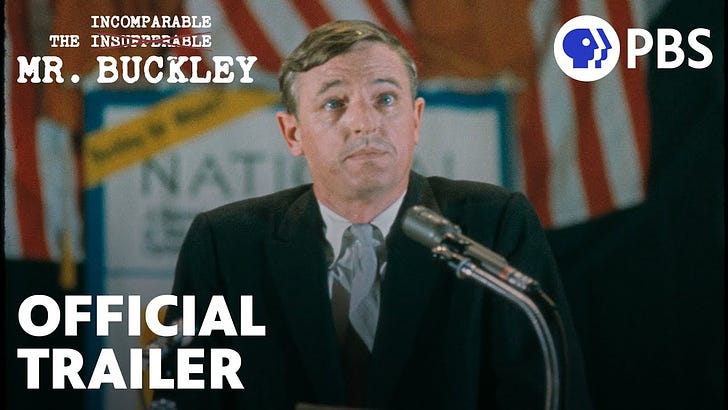



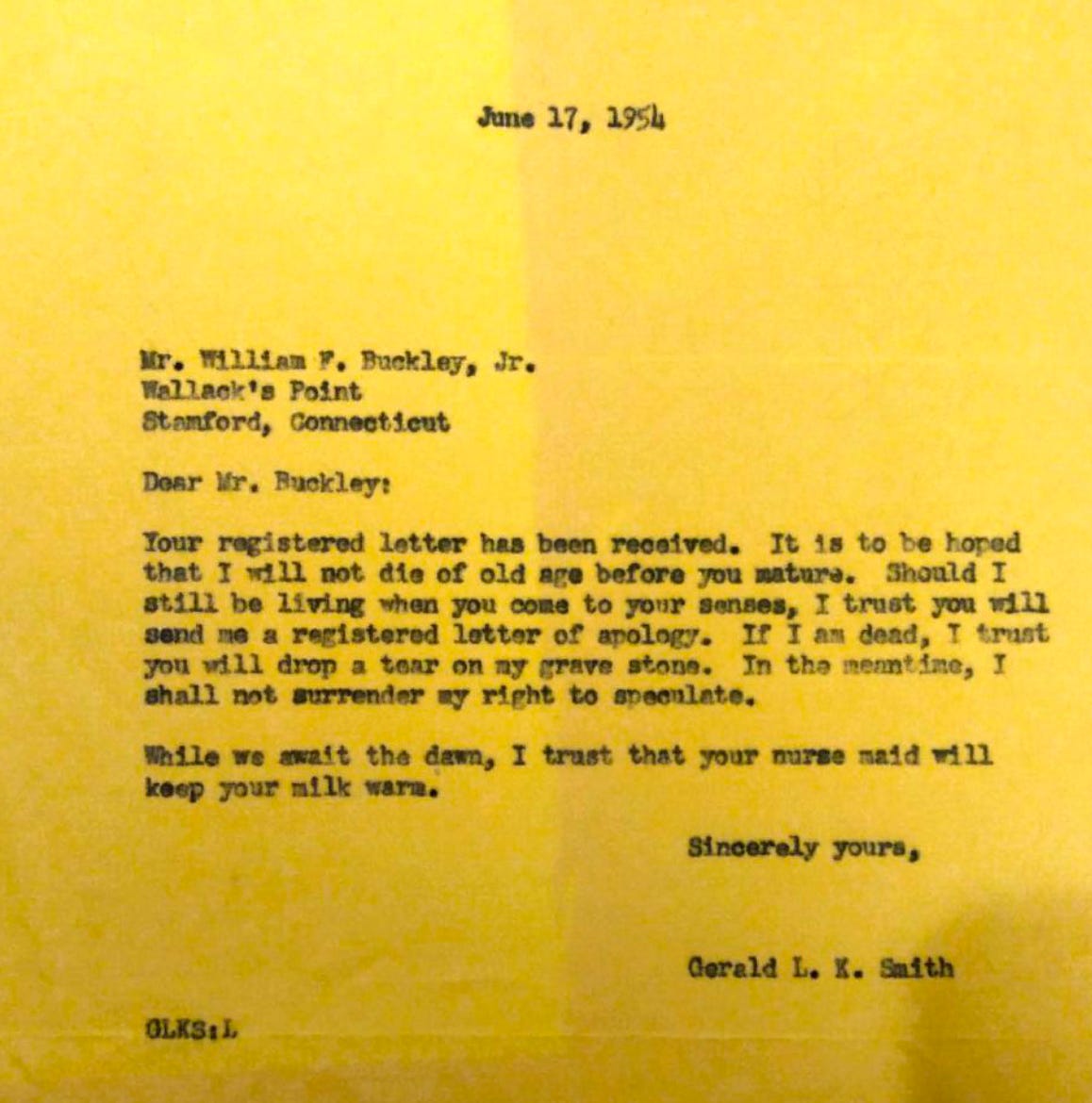
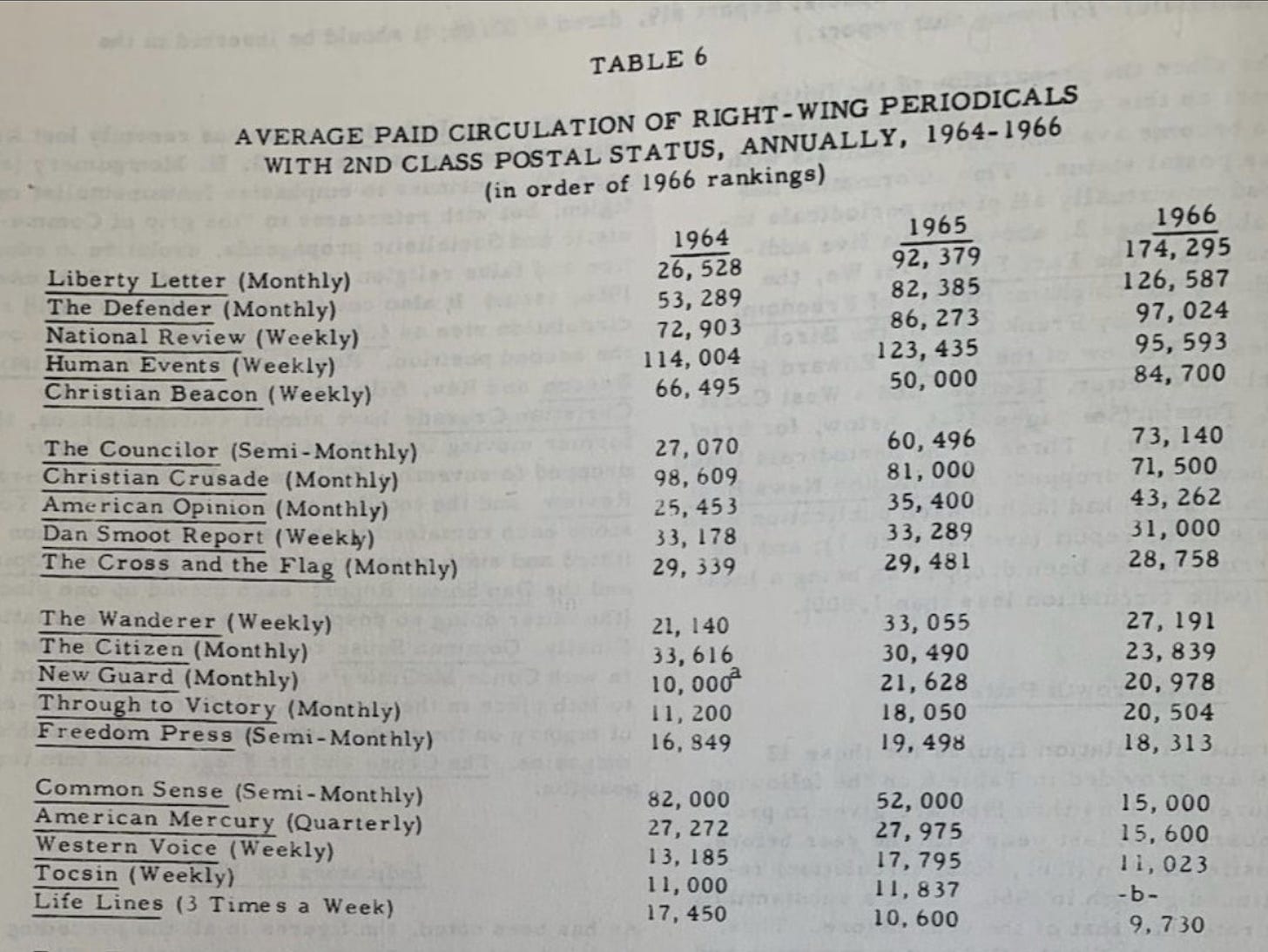
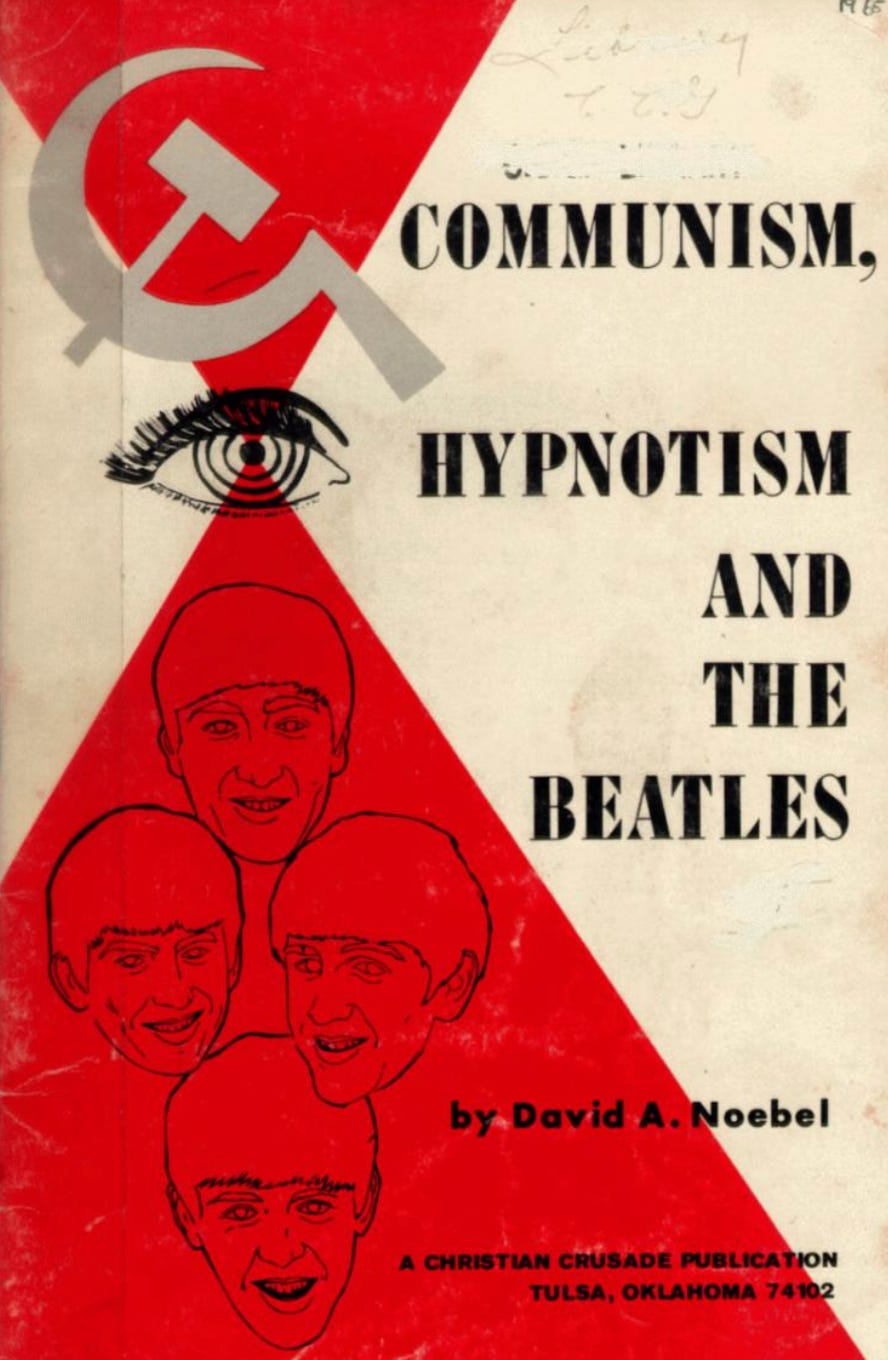
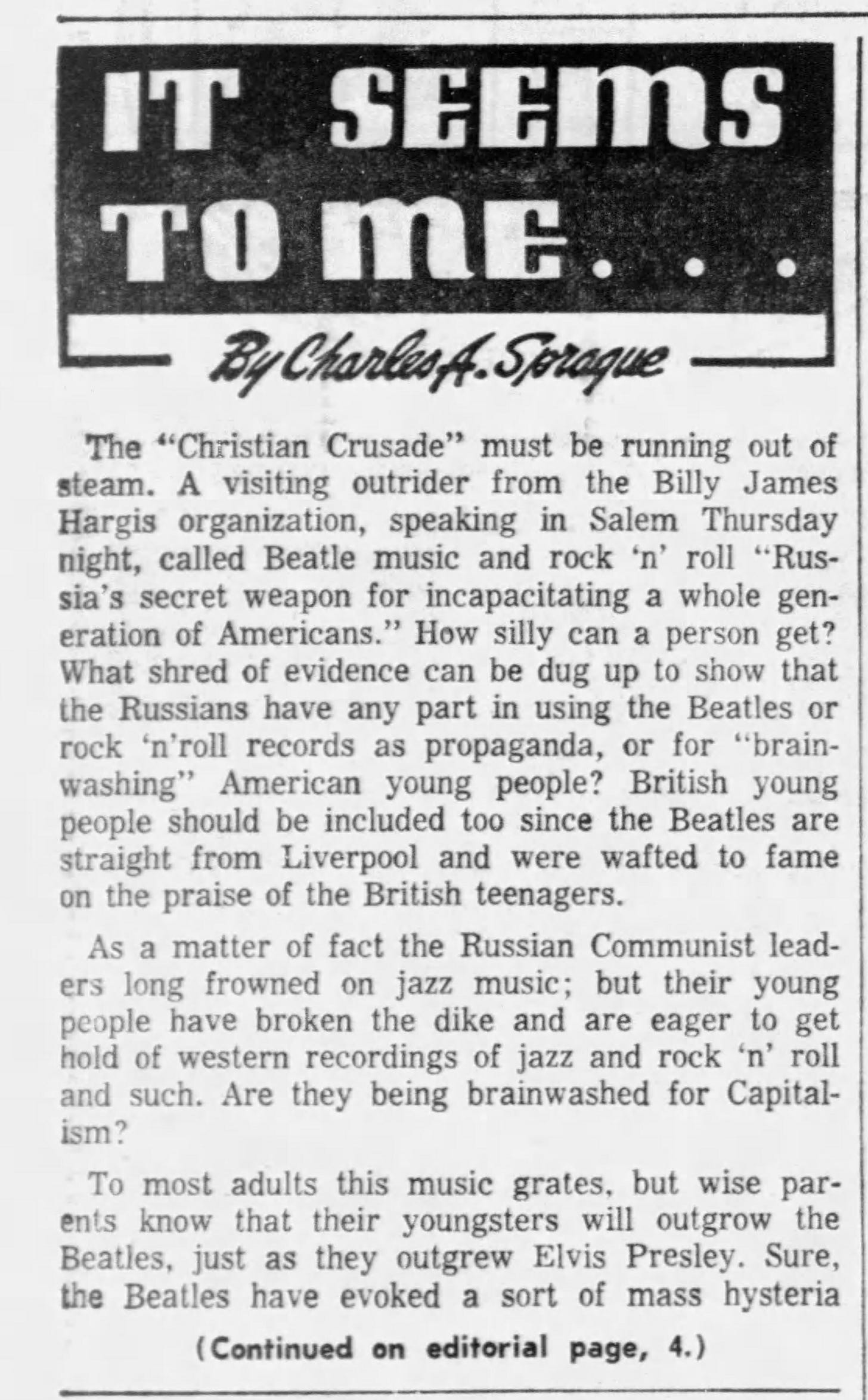

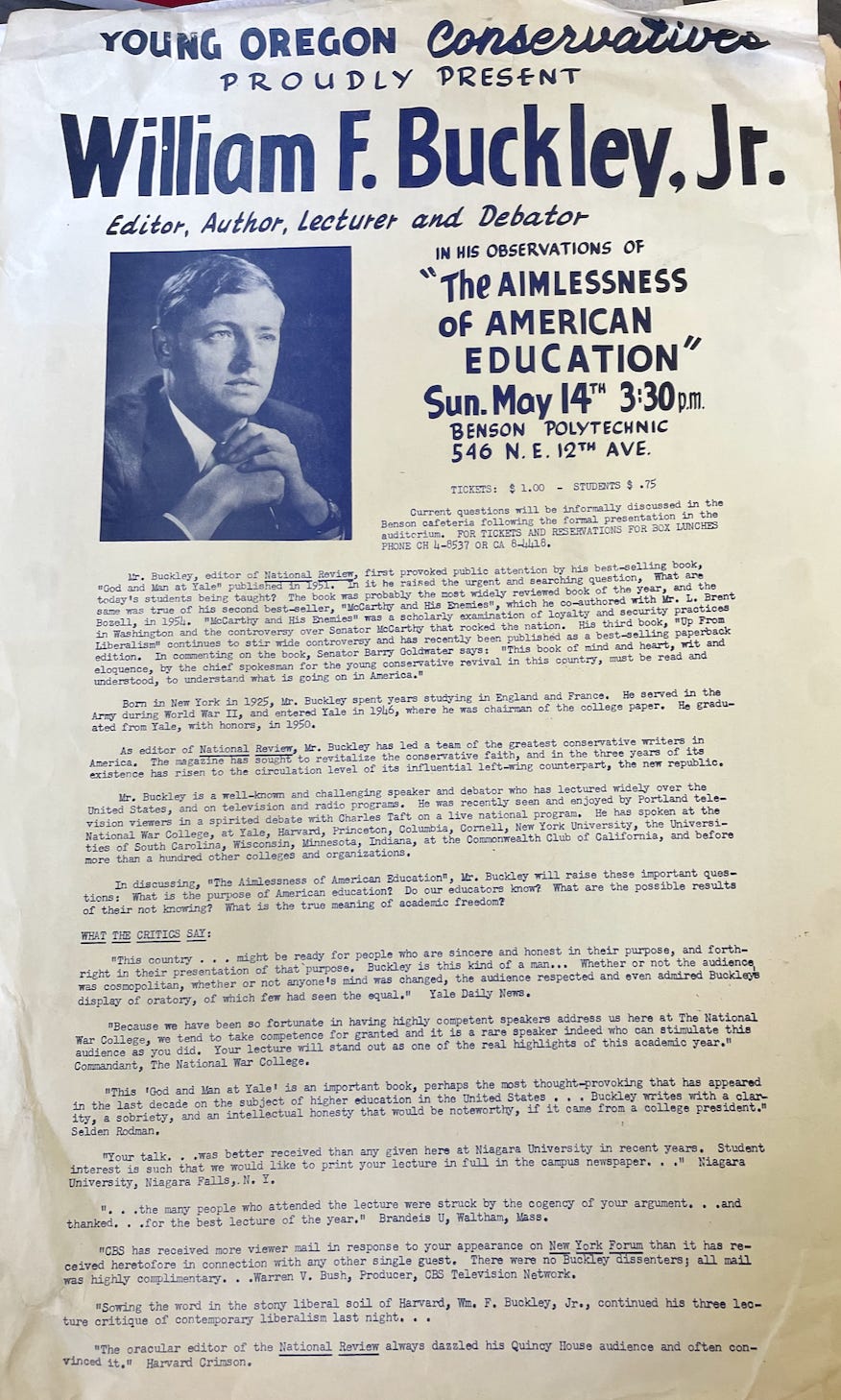
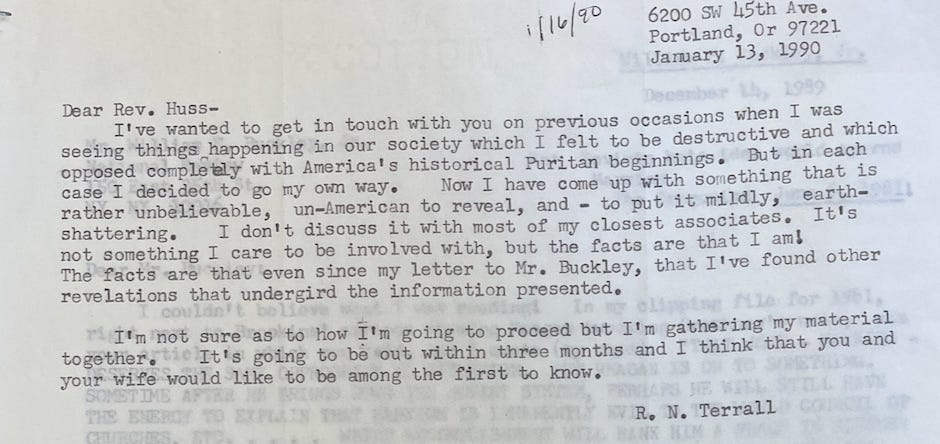
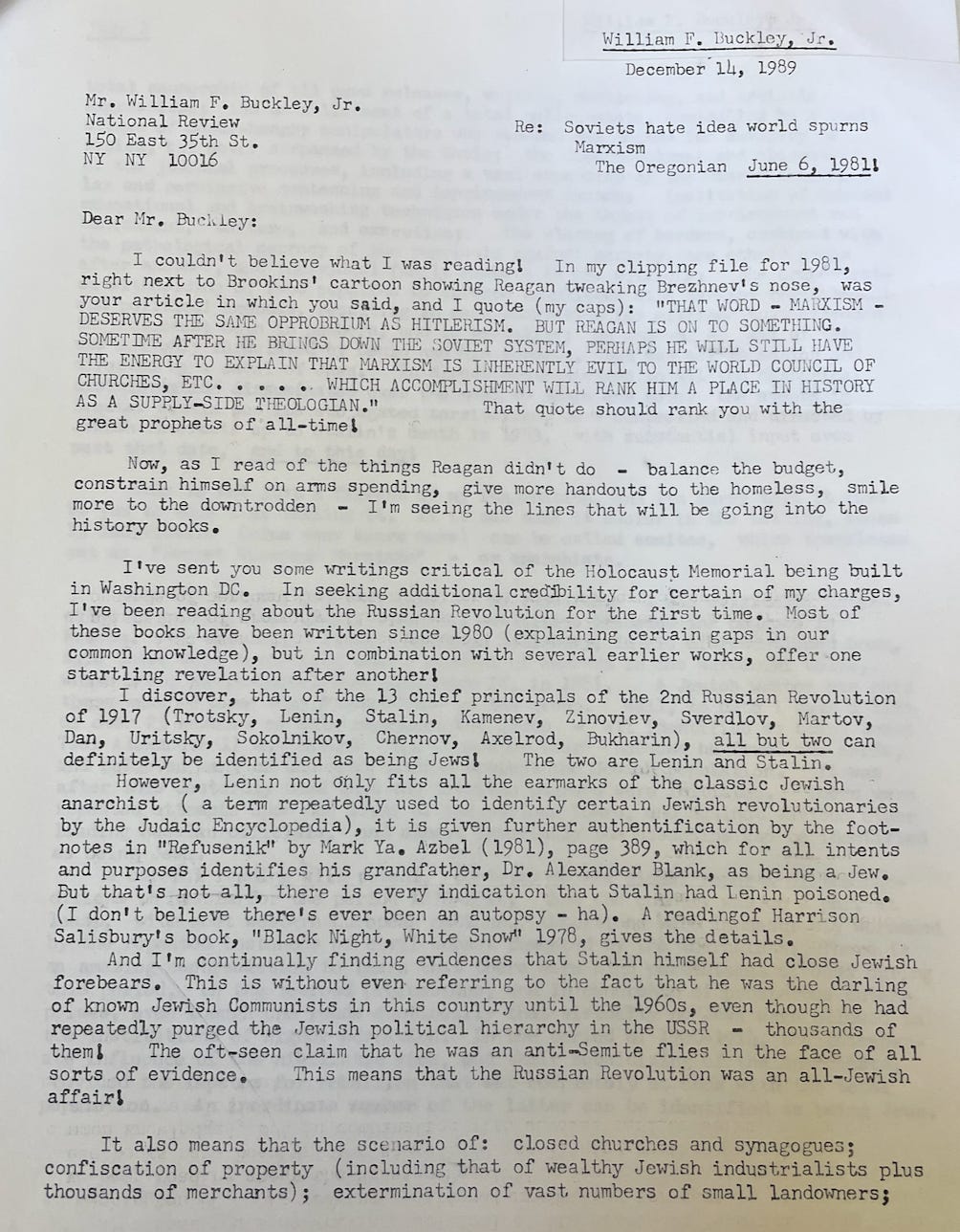
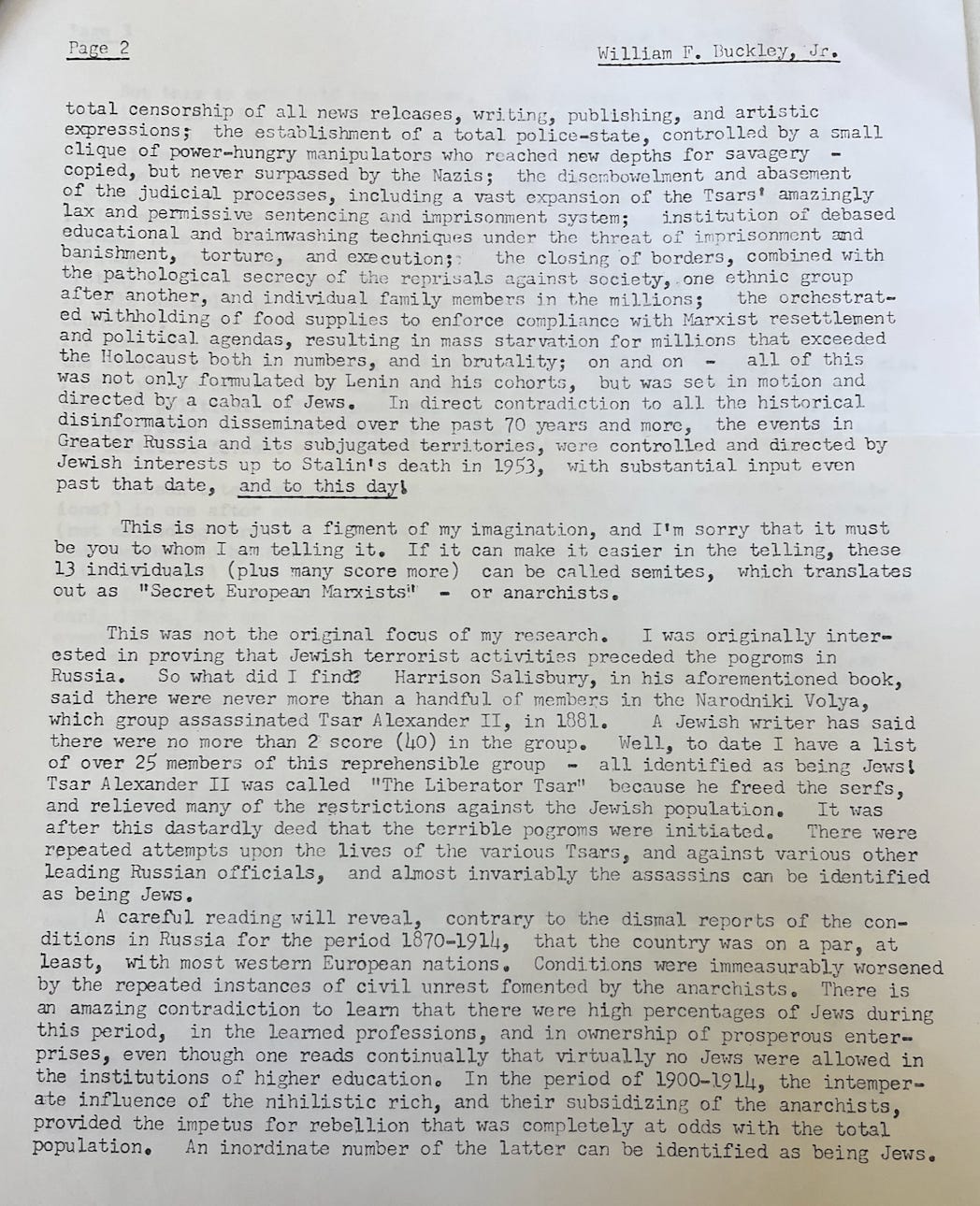

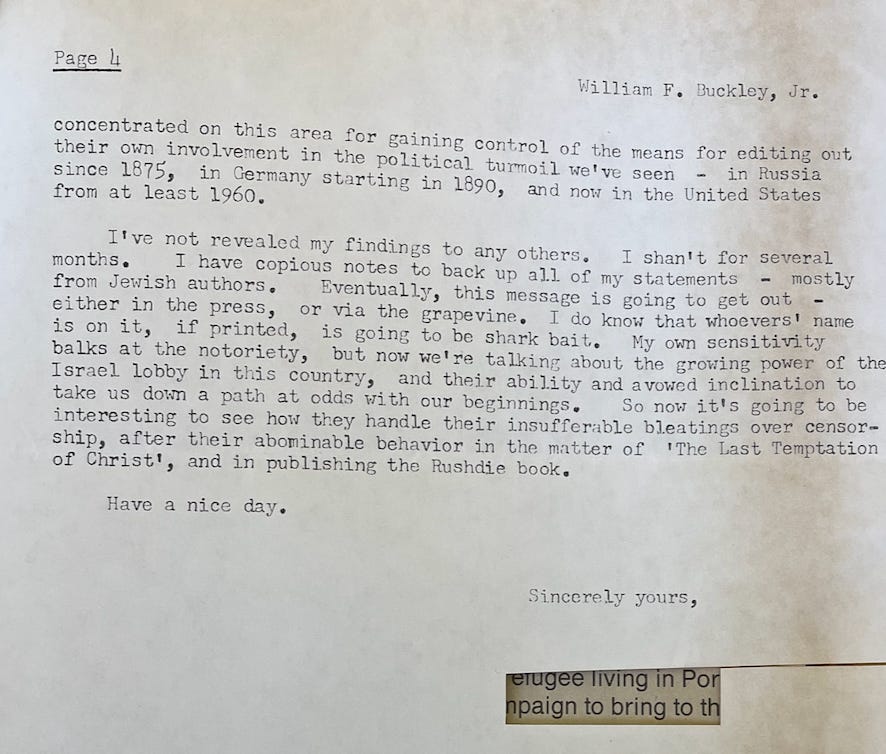
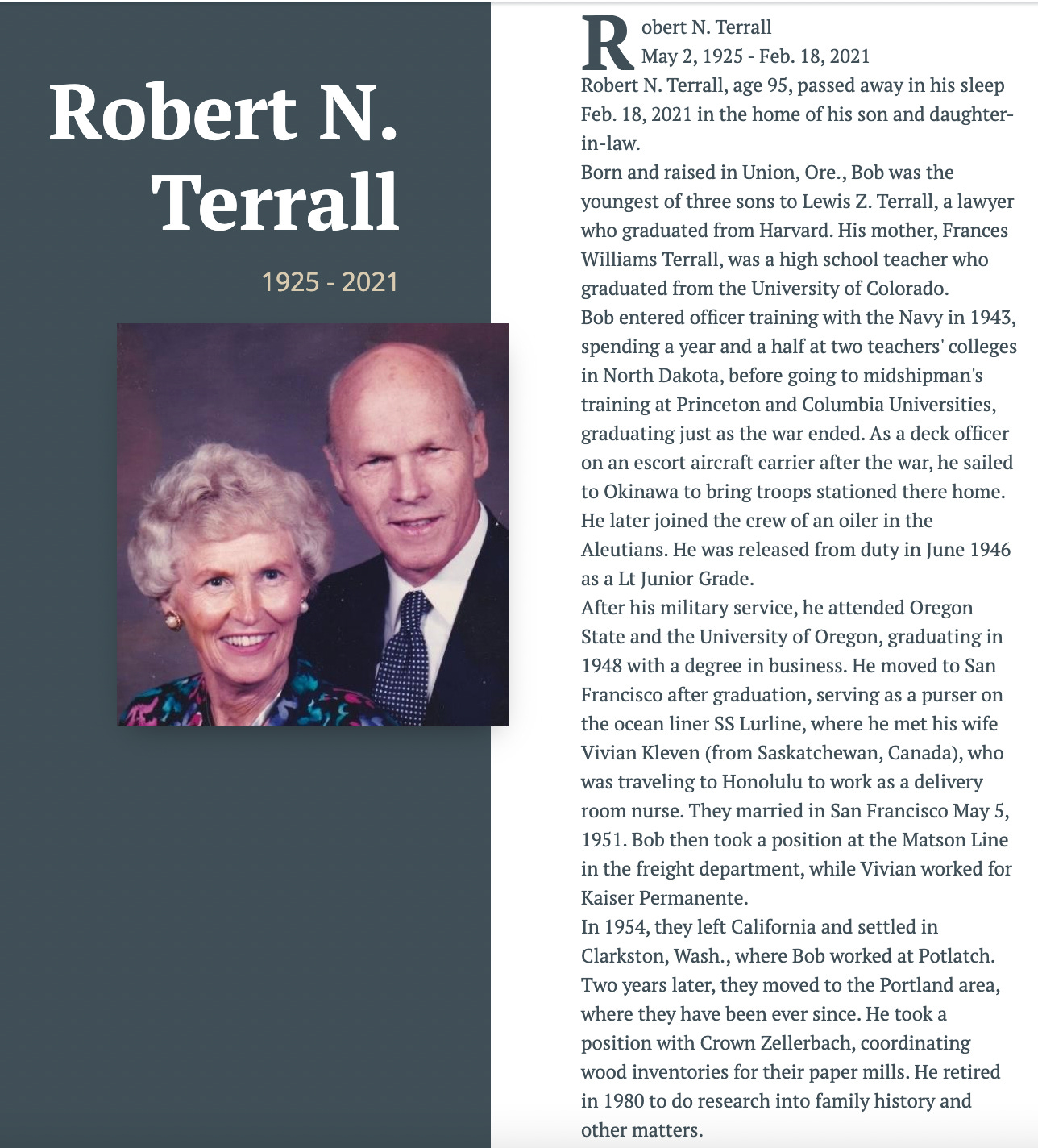
I know I've sometimes said, "that's what conservatism has always been", which is a gross oversimplification; but I think I can safely say, "that's who conservatism has always been willing to play footsie with", with no dishonesty.
Thanks for this great write-up, and I also enjoyed your recent episodes of IS THIS DEMOCRACY! The new David Austin Walsh book is pretty good (not surprised to see your name in the acknowledgements).
I recall watching Buckley a few times and remember thinking that he wasn't that impressive. He had one good tactic, which was to yell "squirrel" and send the guest off on some side tangent when the discussion wasn't going the way he wanted it to. I once saw an old recording of him with Noam Chomsky. Chomsky was very focused on making his points and wasn't being distracted, and Buckley finally said, "What if I come over there and punch you in the nose?"
Chomsky later wrote that Buckley, in the future, would be just a footnote in the history of public relations.